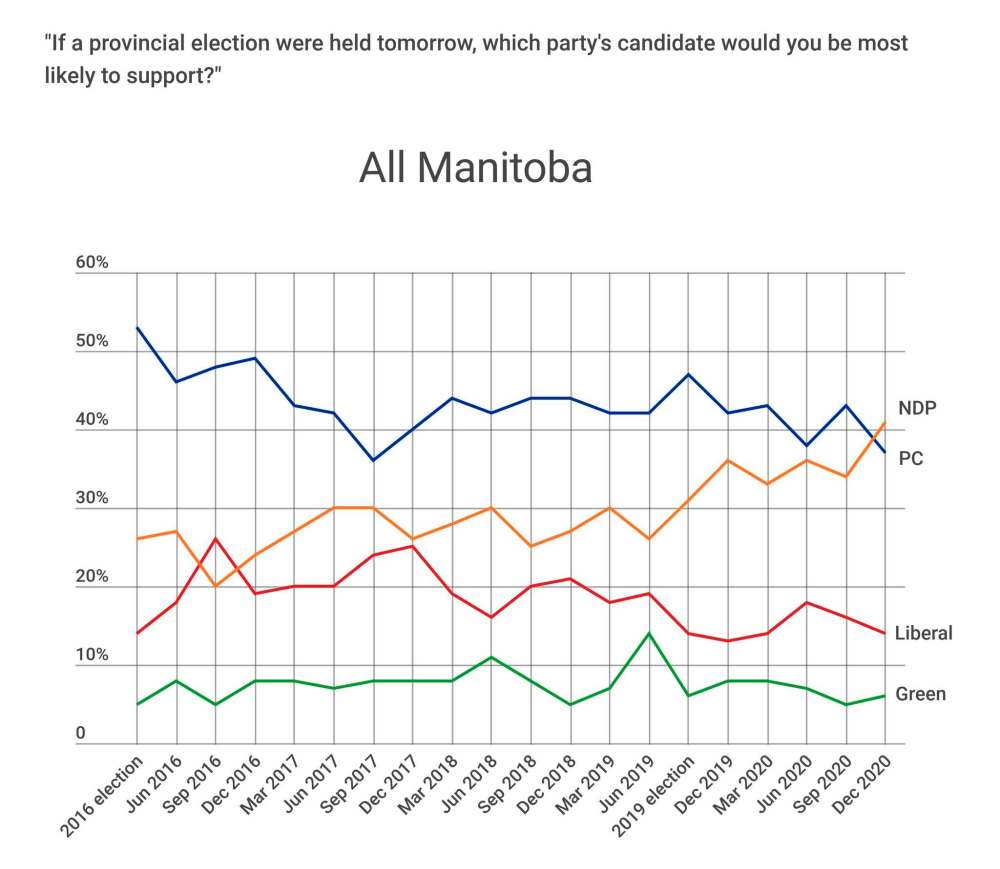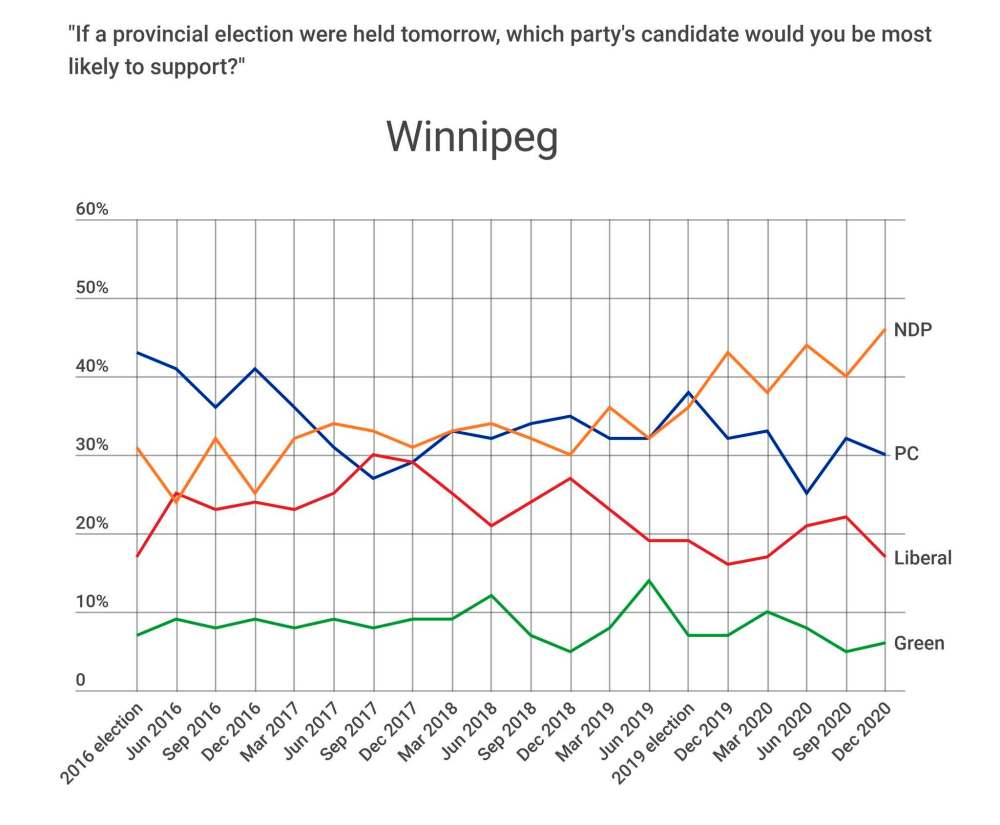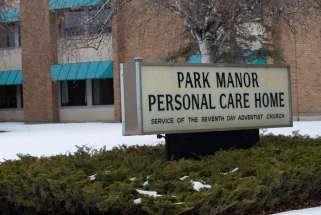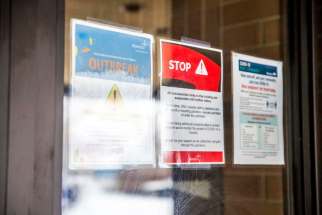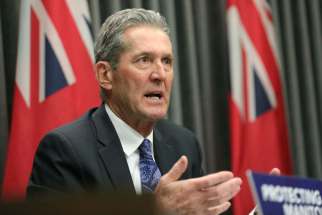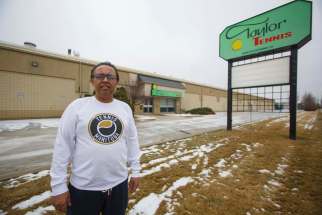Tight-fisted response to pandemic puts Pallister Tories in basement NDP grabs lead in Free Press-Probe poll
Read this article for free:
or
Already have an account? Log in here »
To continue reading, please subscribe:
Monthly Digital Subscription
$0 for the first 4 weeks*
- Enjoy unlimited reading on winnipegfreepress.com
- Read the E-Edition, our digital replica newspaper
- Access News Break, our award-winning app
- Play interactive puzzles
*No charge for 4 weeks then price increases to the regular rate of $19.00 plus GST every four weeks. Offer available to new and qualified returning subscribers only. Cancel any time.
Monthly Digital Subscription
$4.75/week*
- Enjoy unlimited reading on winnipegfreepress.com
- Read the E-Edition, our digital replica newspaper
- Access News Break, our award-winning app
- Play interactive puzzles
*Billed as $19 plus GST every four weeks. Cancel any time.
To continue reading, please subscribe:
Add Free Press access to your Brandon Sun subscription for only an additional
$1 for the first 4 weeks*
*Your next subscription payment will increase by $1.00 and you will be charged $16.99 plus GST for four weeks. After four weeks, your payment will increase to $23.99 plus GST every four weeks.
Read unlimited articles for free today:
or
Already have an account? Log in here »
Hey there, time traveller!
This article was published 10/12/2020 (1825 days ago), so information in it may no longer be current.
The Pallister government’s popularity has hit rock-bottom and the NDP has snagged the lead for the first time since being kicked out of government in 2016.
“This survey really does mark a significant turning point in our tracking,” said Scott MacKay, founder of Probe Research, about the poll commissioned by the Free Press.
“In some ways, this is a referendum on the Pallister government,” he said. “Maybe the chickens have come home to roost here, in a sense.”
The firm questioned 1,000 Manitobans from Nov. 24 to Dec. 4, and found the NDP leading with 41 per cent, overtaking the PC party’s 37 per cent support. That’s a 10-point drop from the support Premier Brian Pallister garnered when his government was re-elected in fall 2019.
The gap is even more dramatic in Winnipeg, with the NDP snapping up support from women in the city while the PCs lost some of their working-class base.
University of Manitoba political scientist Christopher Adams said the poll results have more to do with the government’s pandemic response than the high number of COVID-19 cases.
“I think we really have hit the bottom of where support would be for the government, and I would be very surprised if this downward trend continued,” Adams said.
He noted that right-leaning premiers in Quebec and Ontario had high numbers of COVID-19 cases, but held onto relatively strong support, thanks to their messaging to spare no expense to help people endure the pandemic.
In Manitoba, Adams said, “it was seen by many people that COVID was the opportunity to take it out on the public sector.”
He argued Pallister would have been in deep trouble if he had stuck to the scheduled election date of October 2020, instead of calling the vote one year earlier.
Raymond Hébert, a political science professor emeritus at Université de Saint-Boniface, said there are numerous factors driving down the premier’s popularity.
Methodology
Probe Research heard from 1,000 Manitoba adults online, of whom 277 were randomly selected from an existing panel and the rest were recruited through random phone call.
The results were taken between Nov. 24 and Dec. 4 and Probe applied minor demographic weighting. These results would normally have a 95 per cent certainty within a 3.1 per cent margin of error, though this metric is not applied to online surveys.
“The main problem with the Tories is Pallister; everyone knows that he tends to be a one-man show,” he said.
Health-care workers have complained about insufficient protective gear, while doctors had their motives questioned when they asked for stronger restrictions, which polling shows most Manitobans wanted as well.
Pallister’s obsession with curtailing public spending and his reflexive lack of transparency gave Manitobans the impression the province’s difficult second wave could have been a lot less severe, Hébert said.
“The government really blew it this summer,” Hébert said. “He (Pallister) was the wrong kind of premier, at the wrong time. We would’ve needed a big spender, quite frankly, and not a stingy premier because this is a once-in-100-year crisis.”
The poll shows that in Winnipeg, the NDP has a 16-point lead, at 46 per cent support, compared with the PCs at 30.
“That’s a very large margin,” Adams said. “That bodes very ill for the Progressive Conservatives.”
Adams and Hébert both say the shift in polling has more to do with the PCs than the NDP under Wab Kinew, whose messaging has not changed since before the pandemic.
Neither could account for the Liberals losing their slight rise in popularity over the summer; their support in and outside the Perimeter highway is the same as it was in March.
The last time the PCs had such low support provincially was in late 2017, following a credit-rating downgrade and revelations about the premier’s long vacations in Costa Rica and the use of his wife’s cellphone for government business.
On Thursday, in response to the poll, Pallister told the Free Press he’s focused on fixing long-term health funding, instead of his popularity.
“I don’t really care about polls. I care about people and I care about getting health care to people in a timely way,” the premier said, moments after the premiers met with Prime Minister Justin Trudeau.
MacKay noted the PCs are losing support from part of their base: people who don’t have a post-secondary education.
Among Manitobans with a high school diploma or less education, just 48 per cent support the PCs, down from 62 per cent three months ago.
That could mean the provincial Restart campaign, which focused on an early economic recovery, was better received by the business community than working-class Manitobans, both of whom are key supporters of the PCs.
“There is some tension within the Progressive Conservative party that wouldn’t be present at this time in centre-left parties,” said MacKay.
He believes the drop in support started in the early fall.
“The public was very anxious and agitated, and they were kind of ahead of the government in wanting restrictions faster,” MacKay said.
MacKay notes the polling took place in a gloomy period, just after restrictions were imposed on retailers, the army had been called in to northern reserves battling outbreaks, and an anti-mask rally in Steinbach was roundly criticized.
“We shouldn’t write off the Conservatives; they’re hardly into their (four-year) term… and we expect this pandemic will be over during this term. So, maybe this is a blip,” he said.
dylan.robertson@freepress.mb.ca
Probe poll on provincial party support December 2020
History
Updated on Thursday, December 10, 2020 8:33 PM CST: Fixes typo.

